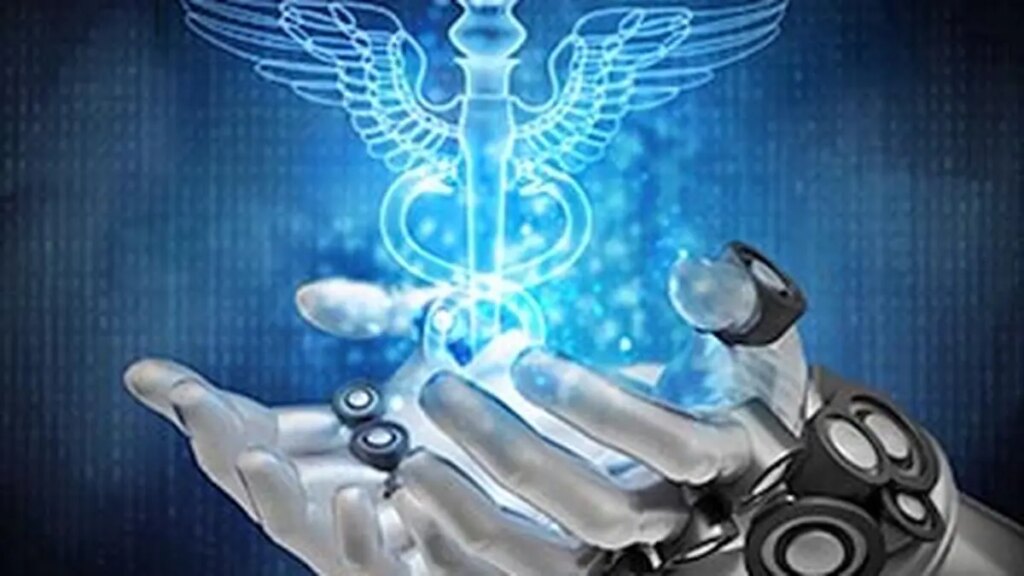
Global TCIM is projected to touch $600 billion in 2025, and AI could accelerate its growth, the note said.
| Photo Credit:
adventtr
Artificial intelligence (AI) and centuries-old healing systems may be at two distant ends of time – but AI can support traditional systems of medicine with evidence and research, “to deliver safe, personalised, effective and accessible care”, said the World Health Organization (WHO), International Telecommunication Union, and the World Intellectual Property Organization (WIPO), in a recent technical brief.
The brief provides a roadmap to tap the potential of these systems of medicine, responsibly, “while safeguarding cultural heritage and data sovereignty”, it said. India’s Traditional Knowledge Digital Library (TDKL) and the Virtual Health Library in the Americas, among others, found a mention in the report, for its use of AI “to preserve Indigenous knowledge, promote collaboration and prevent biopiracy.”
TDKL was started in 2001 by the Council of Scientific and Industrial Research (CSIR), along with the relevant ministries – “to protect Indian traditional medicinal knowledge and prevent its misappropriation at International Patent Offices,” said a note on TDKL. It covers Ayurveda, Siddha, Unani and Sowa Rigpa as well as Yoga; is available in five international languages (English, Japanese, French, German and Spanish) with information technology tools and an innovative classification system, the note said. “As on date, more than 4.54 lakh formulations/ practices have been transcribed into the TKDL database.”
Holistic health
Traditional, complementary and integrative medicine (TCIM) is practiced in 170 countries and used by billions of people, as they seek holistic health, the WHO said. Global TCIM is projected to touch $600 billion in 2025, and AI could accelerate its growth, the note said.
AI is being used “to unlock new frontiers in personalized care, drug discovery, and biodiversity conservation.” This included AI-powered diagnostics in Ayurgenomics; machine learning models identifying medicinal plants in countries including Ghana and South Africa; and AI use to analyse traditional medicine compounds to treat blood disorders in the Republic of Korea, the note said.
“Our Global Initiative on AI for Health aims to help all countries benefit from AI solutions and ensure that they are safe, effective, and ethical,” said Seizo Onoe, Director of the ITU Telecommunication Standardisation Bureau.
Data driven
The brief stressed the importance of good-quality and inclusive data, besides AI systems that reflected the diversity and complexity of traditional medicine. Besides strengthening evidence and the research, AI application for TCIM could also prevent biopiracy, among other things, it said. Biopiracy is “the unauthorised extraction of biological resources and/or associated traditional knowledge from developing countries or the patenting of spurious inventions based on such knowledge or resources without compensation,” it explained.
“Intellectual property is an important tool to accelerate the integration of AI into traditional medicine,” said WIPO Assistant Director- General, Edward Kwakwa.
Informed consent
The document also calls for action to uphold Indigenous Data Sovereignty (IDSov) and ensure that AI development is guided by free, prior, and informed consent (FPIC) principles, the note said. Showcasing community-led data governance models from Canada, New Zealand, and Australia, it “urges governments to adopt legislation that empowers Indigenous Peoples to control and benefit from their data.”
“AI must not become a new frontier for exploitation,” said Yukiko Nakatani, WHO Assistant Director-General for Health Systems, calling for the protection and collaboration of indigenous peoples and local communities, while transforming traditional medicine with AI.
The report also pointed to gaps and risks and called for “holistic frameworks tailored to TCIM in areas such as regulation, knowledge sharing, capacity building, data governance and the promotion of equity, to ensure the safe, ethical and evidence-based integration of frontier technologies such as AI into the TCIM landscape.”
Published on July 12, 2025

